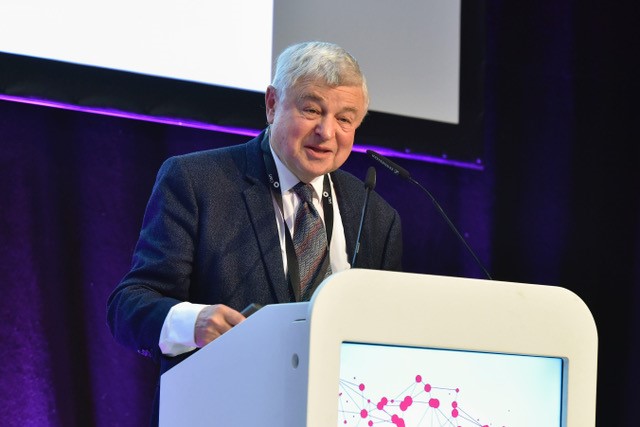Preface
© Andrea Enderlein
Prof. Wolf H. Fridman – Centre de Recherche des Cordeliers, Sorbonne Université, Institut national de la santé et de la recherche médicale, Université de Paris, Paris, France
Dear Colleagues,
The ESMO Immuno-Oncology Congress 2021 took place online from 8th to 11th December 2021. Compared with the annual ESMO scientific congress, this meeting focused exclusively on the most exciting new data in the promising field of immuno-oncology. In total, 1,124 participants from 67 countries attended one of the 31 on-demand sessions featuring over 193 abstracts, 178 e-posters, 146 presentations and 20 educational sessions. The interest for such a specialized oncology meeting confirms the importance of immune checkpoint inhibition as established part of the antitumoral therapy.
The aim of this congress was to provide a comprehensive overview of immunotherapy-based solid tumor treatments and to discuss the role of the immune system in controlling different tumor types, biomarkers for immunotherapy, the mechanisms of action of immune agents administered alone or in combination. The numerous oral and poster presentations enabled to learn more about interesting topics such as the paradigm of host-cancer interactions, the complexity of tumor heterogeneity, the role of tumor microenvironment or microbiome, the tumor mutational burden for prediction of outcomes in patients treated with immune checkpoint inhibitors, the incidence of immune-related toxicities and their management, or new therapeutic strategies in immuno-oncology with practice-changing potential. The highlight of this year’s ESMO IO meeting was certainly the combination of immunotherapy with other anticancer targeted therapies or chemotherapy which are in the focus of this special issue.
Although tumor immunology and immunotherapy-, one of the four pillars next to surgery, chemotherapy and radiotherapy-, play a central role and checkpoint inhibitors have definitely revolutionized cancer treatment, there are still several open questions: Why do some tumors not respond to ICIs? How can the severity of treatment-related toxicities, especially late ones, be reduced? Which patient population benefits the most? How and when to de-escalate immunotherapy?
To face this important current and future challenges in immuno-oncology, it deserves dedicated meetings like ESMO IO to apprehend the extend of its therapeutic applications across different tumor entities to move the field even further and thus enable giving the right treatment, at the right time, to the right patient.
More posts
Immune checkpoint blockade combined with chemotherapy in solid tumors
Immune checkpoint blockade combined with chemotherapy in solid tumors Pooled an
Preface
Preface © Andrea Enderlein Prof. Wolf H. Fridman – Centre de Recherche des





